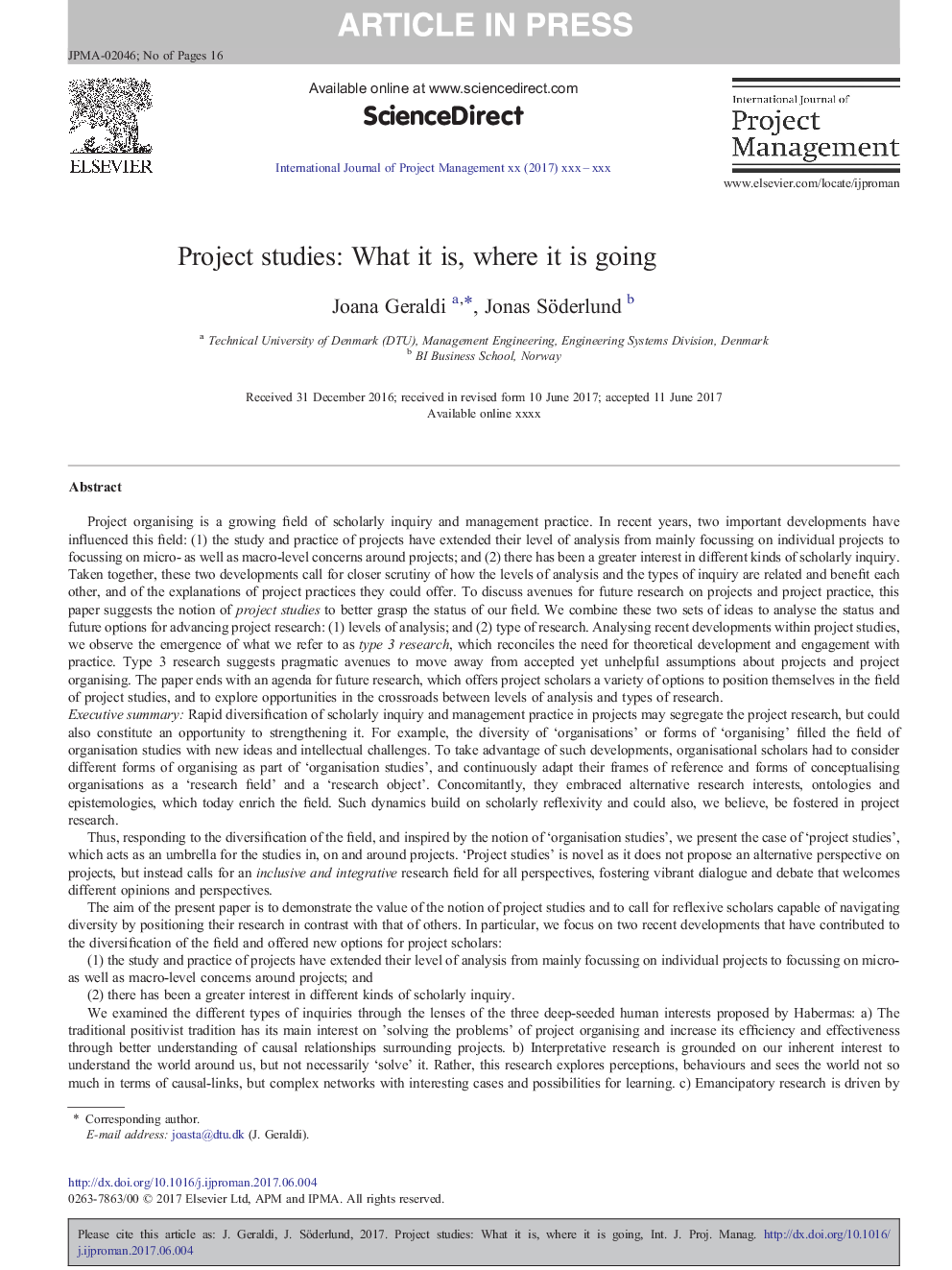ترجمه فارسی عنوان مقاله
مطالعات پروژه: آنچه در آن است، جایی که اتفاق می افتد
عنوان انگلیسی
Project studies: What it is, where it is going
| کد مقاله | سال انتشار | تعداد صفحات مقاله انگلیسی |
|---|---|---|
| 88316 | 2018 | 16 صفحه PDF |
منبع

Publisher : Elsevier - Science Direct (الزویر - ساینس دایرکت)
Journal : International Journal of Project Management, Volume 36, Issue 1, January 2018, Pages 55-70
ترجمه کلمات کلیدی
سطح تجزیه و تحلیل، پژوهش، مطالعات پروژه، سازماندهی پروژه، بورس تحصیلی، جامعه شناسی علم، مدیریت پروژه،
کلمات کلیدی انگلیسی
Levels of analysis; Research; Project studies; Project organising; Scholarship; Sociology of science; Project management;

